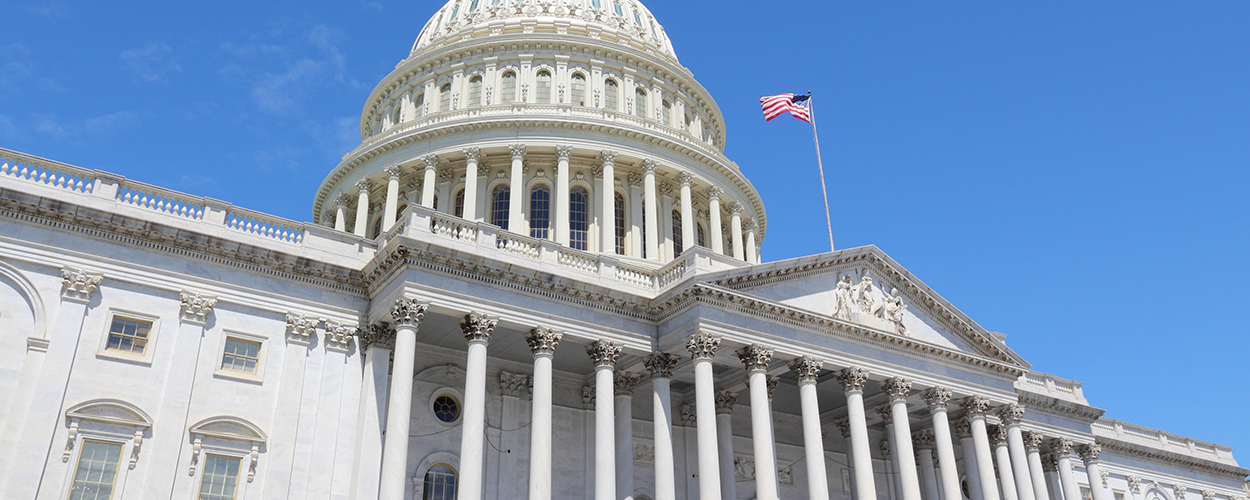This website uses cookies so that we can provide you with the best user experience possible. Cookie information is stored in your browser and performs functions such as recognising you when you return to our website and helping our team to understand which sections of the website you find most interesting and useful.
Business News Digital Labels & Publishers Legal Top Stories
US tech sector and civil rights groups criticise proposals to include copyright reforms in urgent spending bill
By Chris Cooke | Published on Thursday 10 December 2020

Reps for the tech sector and civil right groups in the US have criticised proposals that two copyright measures be included in the urgent government spending bill that is currently being negotiating in Washington. And while the deadline for getting that bill passed in order to avoid a shutdown of America’s federal government looks likely to be extended to the end of next week, tech sector reps argue that is still not enough time to give the two copyright proposals the required scrutiny.
Although the first of those proposals has had quite a lot of scrutiny already, having been approved by the Senate’s judiciary committee and actually passed by the House Of Representatives last year. It’s the CASE Act, which aims to simplify the process for American copyright owners seeking to enforce their rights in disputes where damages wouldn’t exceed $30,000.
It would do that by setting up a new three judge copyright claims board within the US Copyright Office. The board would only hear simpler copyright infringement claims, with the aim of making it quicker and cheaper for smaller copyright owners to enforce their rights, compared to pursuing traditional litigation through the courts.
Needless to say, the proposals are widely supported by the copyright industries, who argue the scheme would primarily benefit individual creators and smaller independents rightsholders.
When the act was introduced into Congress in May 2019, one of the senators proposing it, Thom Tillis, said: “Independent artists who rely on copyright laws to protect their work play an important role in our communities, but the current system makes it difficult for them to receive damages in a cost-effective manner. This bipartisan bill will provide a more efficient way for copyright holders to protect their intellectual property and ensure that our content creators can be properly paid when their work is used without authorisation”.
However, there are critics who say that a simpler cheaper process for enforcing copyright could be open to abuse by so called ‘copyright trolls’ that target individual internet users who inadvertently share copyright protected material online. Supporters argue that opt-outs have been included in the proposals to protect anyone targeted in that way, but opponents say those measures do not go far enough.
Opponents like the Electronic Frontier Foundation, which stated earlier this week: “Previous versions of the CASE Act all failed. This version is not an improvement, and Congress has not heard enough from those of us who would be most affected by CASE: regular, everyday internet users who could end up owing thousands of dollars”. And, EFF adds, Congress isn’t going to hear those concerns if the current version of the CASE Act is rushed through in the next week.
The American Civil Liberties Union has also spoken out on this issue calling the CASE Act “a controversial provision that would significantly alter the enforcement of copyright law and would have the unintended consequence of undermining free expression online”.
Given the urgency of the spending bill, which is even more urgent in the context of the COVID-19 pandemic, “we ask that you decline to include the CASE Act in the upcoming funding bill and instead allow that provision to proceed through regular order where members will have an opportunity to address the significant concerns raised by the bill before it passes into law”.
The other copyright measure that could be included in the spending bill would empower the US Department Of Justice to charge commercial enterprises making available streams of unlicensed copyright-protected content with felony copyright infringement.
Specifics of that proposal – also being made by the aforementioned Tillis – remain unclear, though it seems likely that tech sector lobbyists and the likes of the EFF will oppose it, certainly in the context of it being rushed through Congress in a week.





